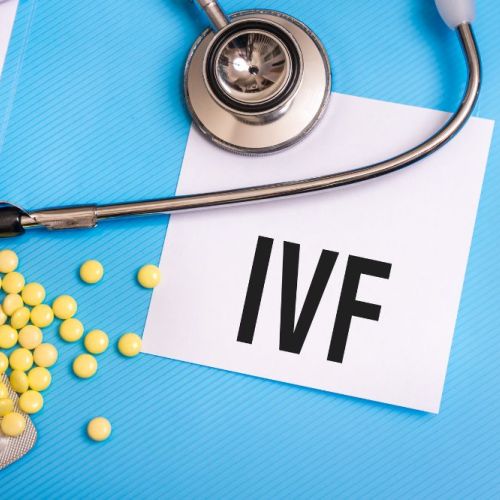How Long is the Egg Donation Process?

There are many reasons why some women have difficulty getting pregnant and may benefit from the help of an egg donor. One of the most common reasons is the aging process. As women age, the number of eggs that still remain in the ovaries decreases along with the health and quality of these eggs.
Egg donors make it possible for some women who have health problems or don’t have healthy eggs of their own to successfully achieve pregnancy. Among women who are interested in donated eggs, one of the most common questions we hear at the Center for Reproductive Health is “How long is the egg donation process?” Typically the egg donation process takes approximately four weeks.
Screening of Potential Donors
Several screening tests are done on women who are interested in being egg donors. Donors must be in good health and between the ages of 20 and 31. Tests that are done to screen candidates include:
- A genetic screening and a family medical history are done to check for genetic diseases and hereditary conditions.
- A health screening is done to evaluate overall health and to check for drug use and sexually transmitted diseases.
- Ovarian function and reserve are evaluated.
- A psychological exam is done.
Donors are required to be nonsmokers and to have a healthy BMI. At the Center for Reproductive Health, egg donations require a legal contact, so donors are also required to not be contractually obligated to donate eggs to another agency.
Steps Involved in Egg Donation
On the second or third day of a donor’s period, an ultrasound and blood test are done. As long as no unexpected problems are discovered, birth control pills are prescribed for two to three weeks, which helps to schedule egg donation.
After the birth control cycle is completed, the donor returns to the clinic. The next step is to begin daily injections of fertility hormones, which stimulate multiple follicles to grow. The donor is taught how to administer injections at home. This can also be done by a family member. Injections are given for around ten to twelve days and don’t usually cause significant discomfort. During this time, the donor visits the clinic several times for continued monitoring and evaluation.
Egg retrieval surgery is the final step. The procedure is painless and takes approximately 30 minutes. The donor is sedated during the procedure and needs a ride home after spending an hour or so in recovery. The donor should get her next period in approximately ten days.
Donated eggs can be fertilized in a lab setting and transferred into a recipient’s uterus. Embryos can also be frozen and transferred at a later time.
Women who donate their eggs provide a priceless gift to women who are struggling to conceive and donors are well compensated for this gift. For more information on egg donation, in vitro fertilization or other types of assisted reproductive technology, reach out to the fertility experts at the Center for Reproductive Health today.
Eliran Mor, MD
Reproductive Endocrinologist located in Encino, Santa Monica, Valencia & West Hollywood, CA
FAQ
Reproductive endocrinology and Infertility is a sub-specialty of Obstetrics and Gynecology. In addition to managing medical and surgical treatment of disorders of the female reproductive tract, reproductive endocrinologist and infertility (REI) specialists undergo additional years of training to provide fertility treatments using assisted reproductive technology (ART) such as in vitro fertilization.
Reproductive endocrinologists receive board certification by the American Board of Obstetrics and Gynecology in both Obstetrics and Gynecology and Reproductive Endocrinology and Infertility.
In general, patients should consider consulting with an REI specialist after one year of trying unsuccessfully to achieve pregnancy. The chance of conceiving every month is around 20%, therefore after a full year of trying approximately 15% of couples will still not have achieved a pregnancy.
However, if a woman is over the age of 35 it would be reasonable to see a fertility specialist earlier, typically after 6 months of trying.
Other candidates to seek earlier treatment are women who have irregular menses, endometriosis, fibroids, polycystic ovary syndrome (PCOS), women who have had 2 or more miscarriages, or problems with the fallopian tubes (prior ectopic pregnancy).
Approximately 1/3 of the time cause for infertility is a female factor, 1/3 of the time a male factor, and the remaining 1/3 a couples’ factor.
At CCRH, we emphasize the importance of establishing a correct diagnosis. Both partners undergo a comprehensive evaluation including a medical history and physical exam.
Furthremore, the woman’s ovarian reserve is assessed with a pelvic ultrasound and a hormonal profile. A hysterosalpingogram (HSG) will confirm fallopian tube patency and the uterine cavity is free of intracavitary lesions. A semen analysis is also obtained to evaluate for concentration, motility, and morphology of the sperm.
Additional work up is then individualized to direct the best possible treatment option for each couple.
In vitro fertilization (IVF) is the process that involves fertilization of an egg outside of a woman’s body.
The process starts with fertility drugs prescribed to help stimulate egg development. In your natural cycle, your body is only able to grow one dominant egg, but with stimulation medication we can recruit multiple eggs to continue to grow. After about 8-10 days of stimulation, the eggs are surgically retrieved and then fertilized with sperm in a specialized laboratory. Fertilized eggs are then cultured under a strictly controlled environment within specialized incubators in the IVF laboratory for 3-5 days while they develop as embryos. Finally, embryos (or an embryo) are transferred into the uterine cavity for implantation.
Before deciding if IVF is the right choice, it’s important to sit down with an REI specialist to discuss available treatment options. For some people, other methods such as fertility drugs, intrauterine insemination (IUI) may be the best first choice treatment. At CCRH, we believe each individual couple is unique and not everyone needs IVF.
While not painful, the fertility medications may some side effects including headaches, hot flashes, mood swings, and bloating. The injection sites may also bruise.
Unfortunately, no. Many people think once they start IVF it’s a matter of time that they will be pregnant and have a baby. But according to national statistics per the Society of Assisted Reproduction (SART), on average 40% of assisted reproduction cycles achieve live births in women under age 35. The chances of success then continue to decrease with advancing age.
At CCRH, we employ only evidence-based interventions to ensure patient safety and optimal outcome. While we cannot guarantee a baby, we guarantee that you will receive the best, most advanced, personalized care to help you maximize your chance of a baby.
The average IVF success rate (success measured in live birth rate) using one’s own eggs begins to drop around age 35 and then rapidly after age 40. This is due to the decline in egg quantity and egg quality as a woman ages.
Our clinic’s success rate consistently beats the national average year after year.
Individual insurance plans often do not have any coverage for infertility treatments. If you have a group plan, you can call members services to see if they have coverage for infertility (including consultation/workup and IVF).
After your consultation with our REI specialist, one of our dedicated account managers with sit with you to go over the cost of treatment.




